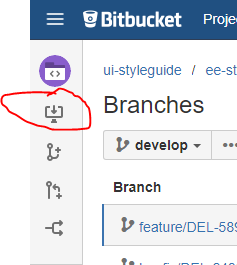Getting back to work after a while it seems I don't know how to clone a bitbucket repository. Any idea why I get the "not found" error?
git clone --verbose https://bitbucket.org/helllamer/mod_openid
Cloning into 'mod_openid'...
remote: Not Found
fatal: repository 'https://bitbucket.org/helllamer/mod_openid/' not found
System:
git version 1.9.1
uname -a Linux openvpnas2 3.13.0-44-generic #73-Ubuntu SMP Tue Dec 16 00:22:43 UTC 2014 x86_64 x86_64 x86_64 GNU/Linux


cloneoption. Clicking that will give you a link to the repository. Copy that and trygit clone url-from-bitbucket. This should work! – Depreciablehttps://username@bitbucket/path/to/project. You sure you are using the right url? – Depreciable.gitin the end. You URL is malformed. – Depreciable